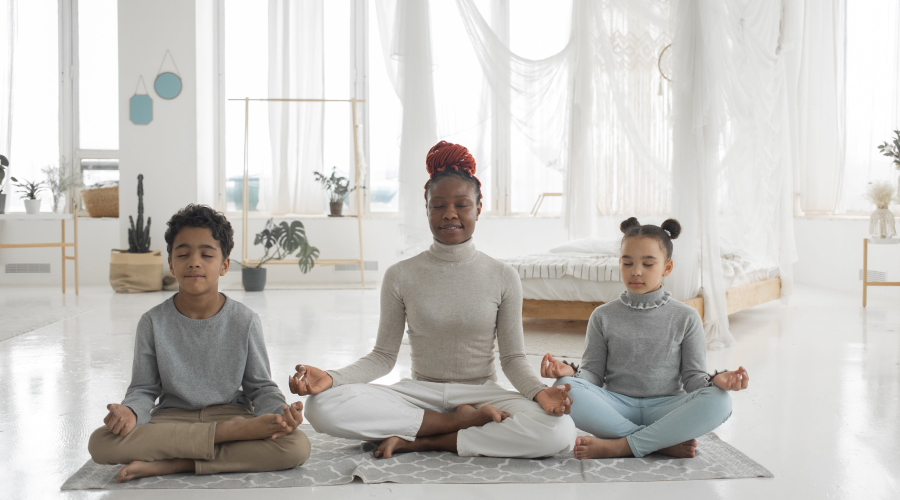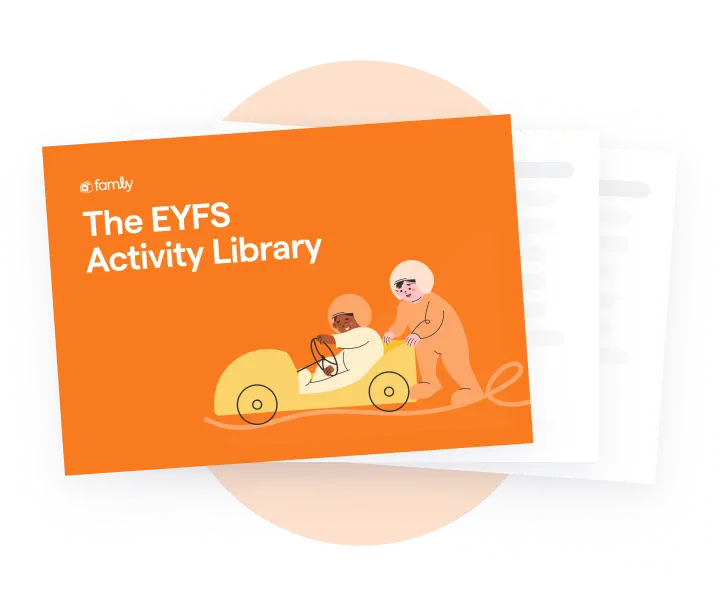settings
children
With Famly since
At first glance, yoga and the Early Years might seem like a strange pairing. However, according to Helen Garabedian, Author of Itsy Bitsy Yoga for Toddlers and Preschoolers, "Many poses are active and playful, which helps children cope with their emotions"
Even though it's a physical activity, yoga’s non-competitive nature can be calming for children. And it doesn’t have to be complicated poses either – it could simply be a set of useful breathing exercises.
But why does Yoga work so well for out pre-schoolers? We get into it below...
Using yoga to support pre-schoolers with self-regulation
Yoga is not only a fun activity but one that could have a real impact on child development. Being at nursery can sometimes be stressful and even demanding, so teaching children to relax is really important.
There’s scientific evidence behind the cause too. A study from the US has revealed that a daily yoga program reduced aggressive behavior, social withdrawal, and hyperactivity in children, when compared to a control group of children who did not practice yoga.
By exercising the physical body and calming the mind, children learn about the mind-body connection. Yoga teaches children to persevere, be patient, and work towards achieving more. As we mentioned earlier, mastering a pose can offer a huge boost to both their confidence and self-esteem as well.
Using yoga in the Early Years to support physical development
Yoga for children can help to promote their physical strength as they learn to use their muscles in new ways. Different poses challenge different muscle groups and help each child to become aware of their body and the way it functions.
Achieving balance is very important in yoga. Even for children that find balancing hard, in a calm environment they will gain mental and physical stability from being patient. Working with a child to remain calm whilst they wobble over will help them with their stability. With regular practice, their physical balance will improve, and the child will get a hugely important sense of accomplishment.

Using yoga in nurseries to promote concentration and calm
By practising different poses, children will be encouraged to clear their mind and focus on the movement or technique in practice. Working on a single focus will develop their concentration, which can have positive repercussions in other areas of their development too.
You can always put soothing music on whilst practising yoga to help calm the children – there are plenty of playlists on YouTube. Although yoga is classed as physical exercise, it mustn’t be overlooked as an exercise for the brain too. It can bring calm to a very active mind, so it’s not only a great stress reliever for your children, but for your staff too!
The big ideas

Top tips to get started with yoga in your Early Years provision
- Begin by deciding on a simple routine and a staff member who's happy to instruct the children. Check out our 10 ways to explore yoga with children article for inspiration.
- You don't need to be an expert in yoga, but you do need to understand the needs and abilities of the children in your setting. Focus on a calm and safe environment over trying to pursue the more challenging poses.
- You should repeat the same yoga postures over several weeks allowing the children to become at ease with them, letting their skills and confidence improve.
- Don't feel you need to buy all the accessories. Investing in yoga mats and props is only optional. You can have a great yoga session on the floor, or even out in the fresh air if the weather doesn’t have other plans.
Try learning journals for free
Add observations, and build digital learning journals to share with families instantly. All with your completely free 14-day trial.
Get started









